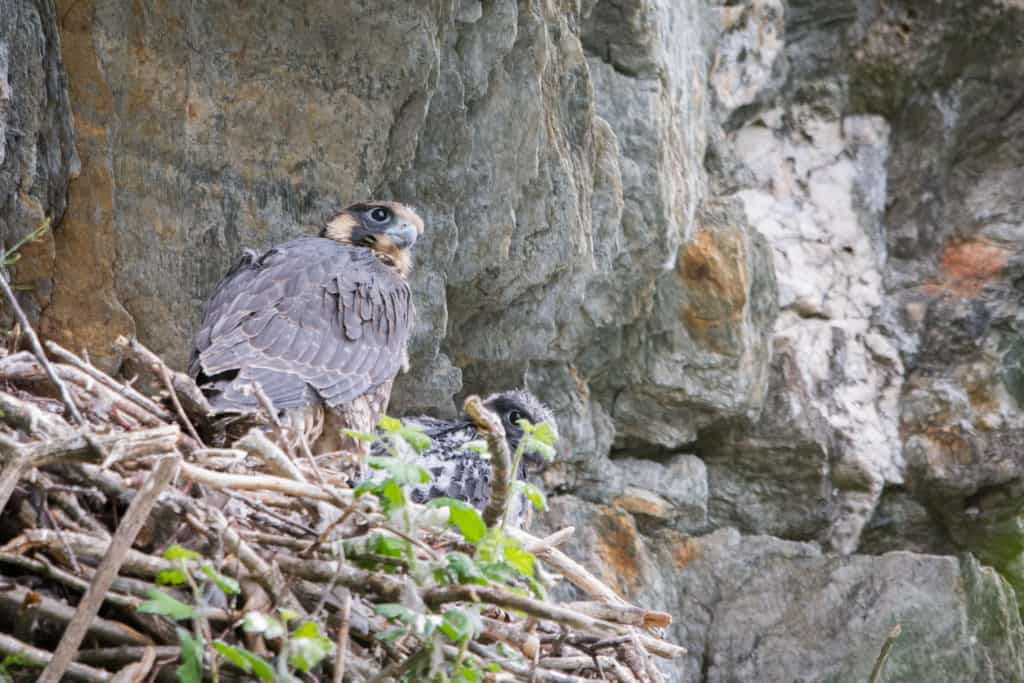
As they return to Vermont each spring, peregrine falcons prepare to nest and raise their young on the high cliffs throughout the state. To protect peregrine nesting sites within the Green Mountain National Forest, Forest Service officials have once again closed human access at two prominent cliff sites on the Forest’s Rochester and Middlebury ranger districts, which also are popular hiking areas.
On March 15, the Rattlesnake Cliff area above Lake Dunmore in Salisbury and Mount Horrid-Great Cliff on Route 73 in Rochester were closed until Aug. 1. The closure, which includes the trails and areas leading to and accessing these cliffs, is intended to prevent disturbance to critical falcon nesting habitat. Peregrine falcon populations suffered declines due to the use of DDT in the 1940’s but have rebounded since their reintroduction in the 1980’s. Even though peregrines are now considered a recovered species in Vermont, it is critical to minimize human disturbance to nest sites so that the species’ recovery continues. Across Vermont, 2020 was a successful year for peregrines; 48 nesting pairs produced 77 young that fledged from their cliff nests.
Given the increased participation in outdoor activities, particularly hiking, we all need to respect important habitat and the closures that have helped the peregrine falcon return to our forests. Please adhere to the closure signs posted on the trails leading to the cliff overlooks.
Information regarding the specific locations for the closure areas is available on the Forest Service website. Disturbance of peregrine falcons and/or these nesting grounds is a violation of federal law and may result in a fine up to $5,000 and six months in jail. Please report any harassment of nesting peregrine falcons to 1-800-75ALERT. The Forest Service works with Audubon Vermont, Vermont Fish a& Wildlife, and other non-profit organizations to protect peregrine falcons.




